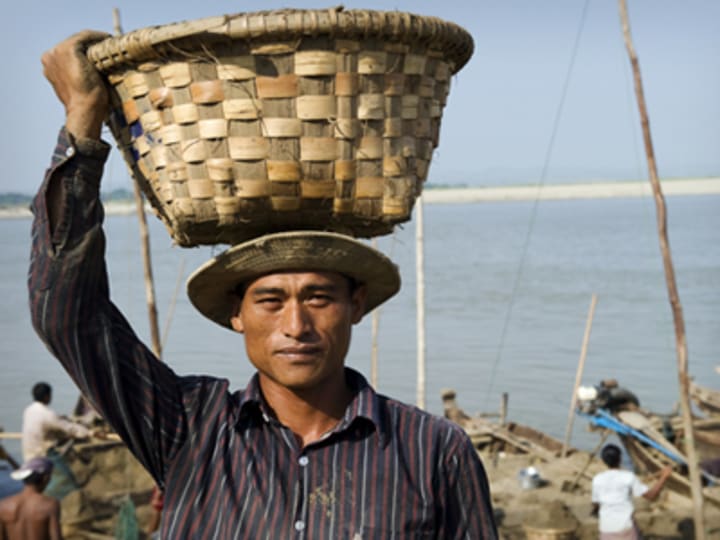
Since it started opening up in the past two years, Myanmar has been taking essential steps in pushing for landmark labor rights policies — and the international aid community is starting to take notice.
More local and foreign NGOs are getting involved in efforts to stop human trafficking and forced labor in the Southeast Asian country, just waking up from decades of military rule.
In Myanmar, where democracy used to be an alien concept, pushing for more comprehensive labor rights towards development for its workers is essential, and now the wheel has been set in motion with several new laws approved by the government of President Thein Sein.
Human trafficking and forced labor have always been a problem in this country, where children used to regularly drafted into the army or ethnic guerrilla movements, women were sold off as cheap sex commodities in neighboring countries, and countless of civilians were used as forced labor by the military.
But with a civilian government in power since late 2010, Myanmar is trying to catch up on labor rights, and that process, according to the International Labor Organization, can be fast-tracked.
What to do
So how can the aid community help?
Tim de Meyer, ILO’s senior specialist on labor standards in Asia-Pacific, explained there are three ways international and local NGOs can help push labor-related advocacies in Myanmar:
Promoting capacity building exercises so labor unions can learn how to organise themselves in pursuit of a specific goal.
Persuading local officials to adhere to international labor standards and enforce them.
Exposing these officials to the long-term benefits to those practices for economic growth through case studies in other countries.
In an interview with Devex, De Meyer added that there should also be an increased awareness, not just among government officials, but also with by civil society and the workers themselves, of international labor standards.
“We see that after over fifty years of isolation, there is a great need for exposure and increased awareness for officials and civil society on what international labor standards are and why they are important. Heightening awareness of workplaces in other countries and the positive effects is one,” he said.
Landmark policies
On Aug. 30, President Thein Sein signed the Employment and Skills Development Law to create job opportunities, enhance people’s labor skills and reduce unemployment in Myanmar. A year and a half ago, the government passed another law that for the first time allowed workers to voice their concerns with their employers and approve collective bargaining strategies.
De Meyer said the implementation of both laws is a “landmark development” in the reform process of a country where not so long ago there were practically no labor rights at all. For instance, he noted, over 400 trade unions have registered since the Labor Organization law came into effect in March 2012, and this means workers are now more engaged in their own affairs.
However, he admitted, it is still difficult for trade unions to play a leading role in the process, as the movement is still in its early stages.
De Meyer explained that allowing laborers to gather and enhancing their skills are just pieces of a bigger puzzle, which includes fair wages, worker security and tenure — but the government is driving on the right road.
Read more development aid news online, and subscribe to The Development Newswire to receive top international development headlines from the world’s leading donors, news sources and opinion leaders — emailed to you FREE every business day.


